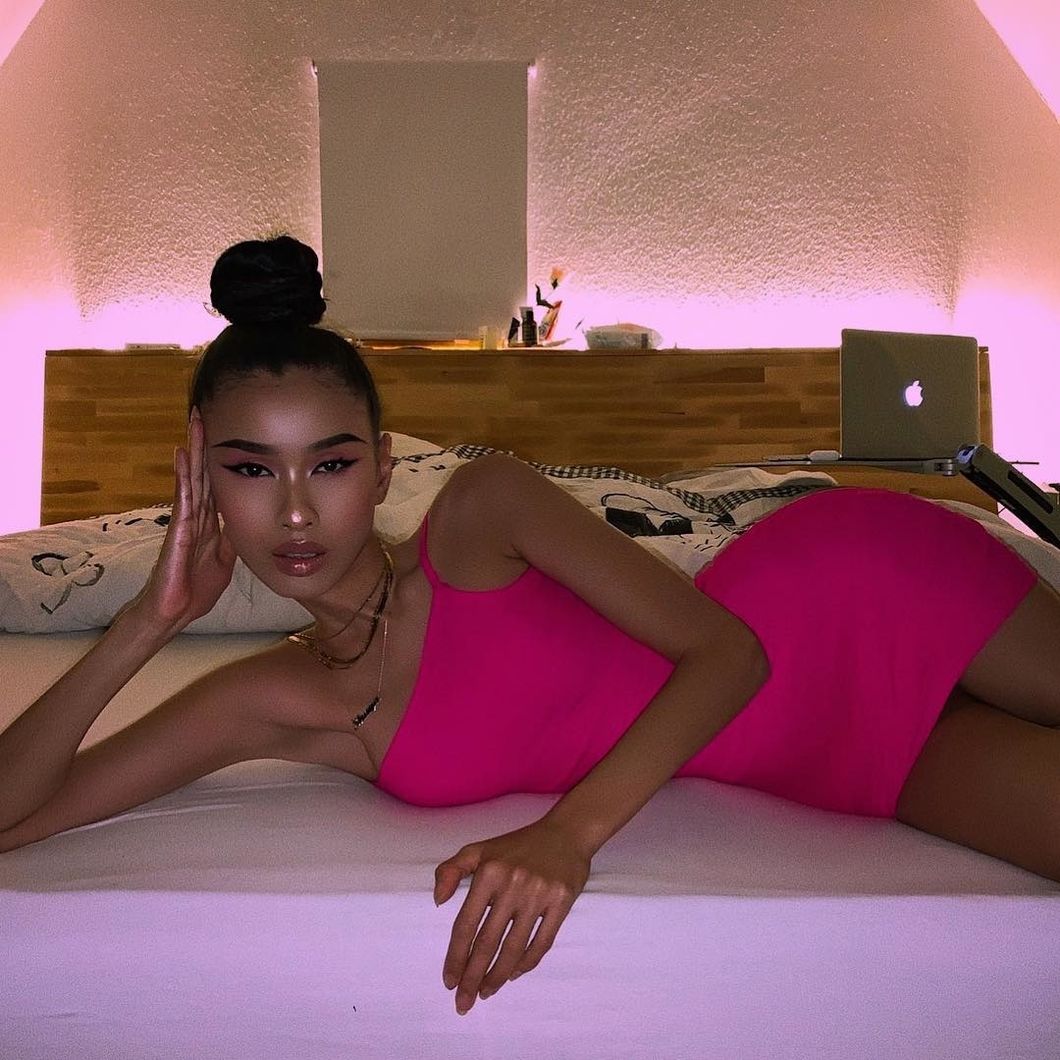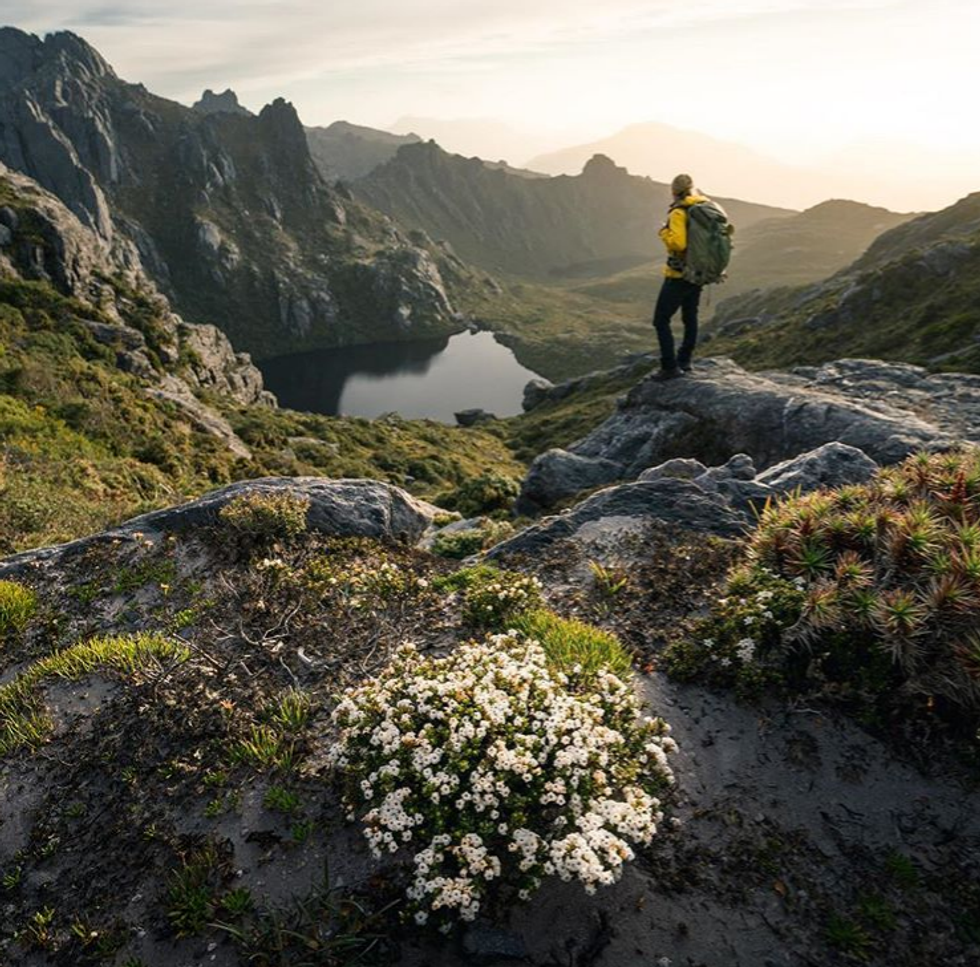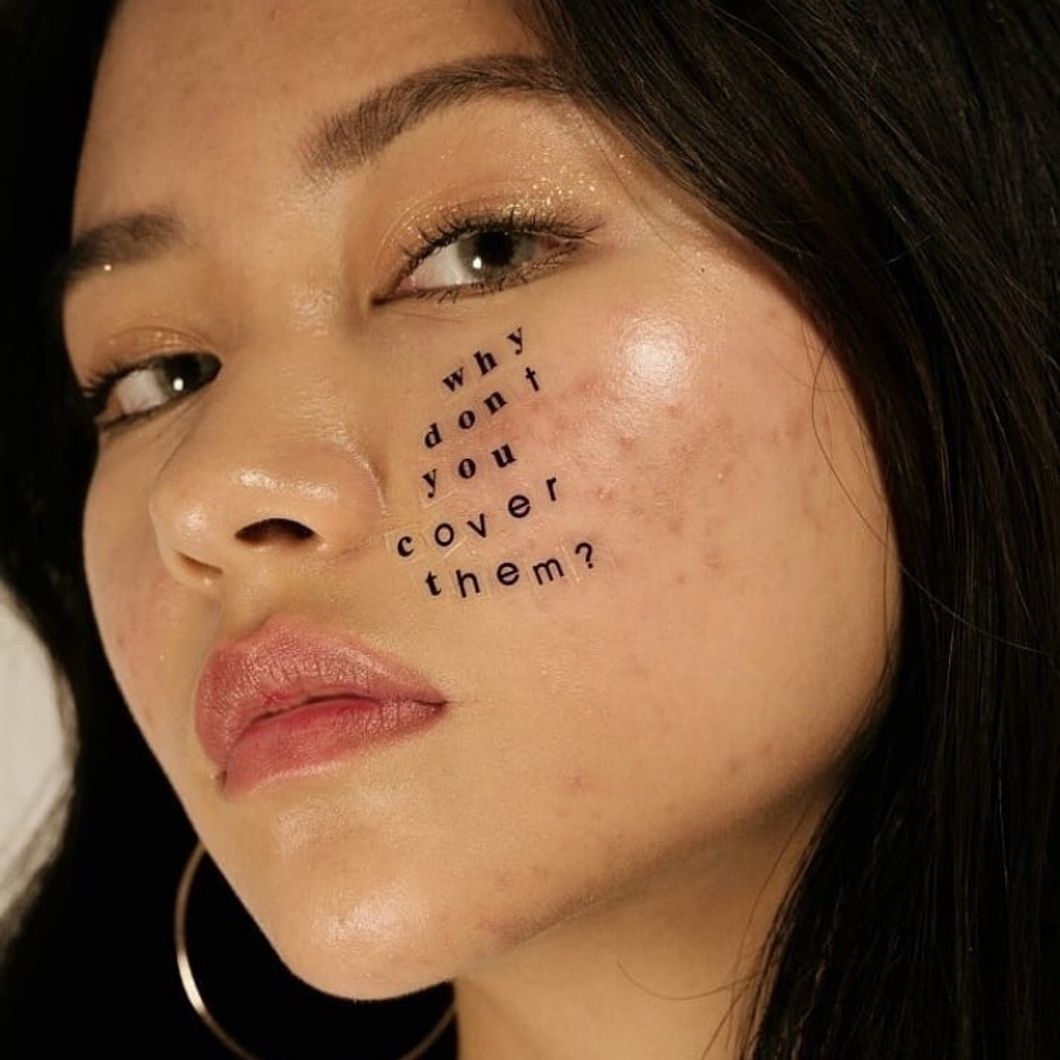Beach Bodies, Diet Culture, And Other Things That Keep Me Up At Night
Summertime and the living is, um, not so easy.
It's that time of year again. The seasonal memes about "summer bodies" that aim to laugh away the paranoia that often consumes this topic are flooding Facebook. While I can appreciate the internet's attempts to poke fun at the systemic need for and obsession with ideal beach bodies, it still unintentionally feeds into the narrative. We may all collectively chuckle at our bodies not being "ready" or that the beach will "take whatever body it gets," but I feel like it's the fakest laugh we can offer. It's the laugh we give to hide the stinging reality of admitting that we're somehow not good enough.
Rest assured just one post over, though, we'll be quickly inundated with an overwhelming variety of "quick fixes" to rid ourselves of these body image woes. If you've ever found yourself wandering any social media platform, you know what I'm talking about. The latest fads and crazes that promise rapid weight loss, next-to hand-sculpted muscles, and three granted wishes. I'm joking about the wishes, but you'd need them for these glorified scams to work.
Extreme diet trends and superior summer figures aren't the whole picture, they're just the beginning. I think one of the most common repercussions stemming from this toxic body image culture is the nightmare that's swimsuit shopping. I think it's a safe assumption that the majority of women, and probably men, have an outright phobia of swimsuit shopping. The initial browsing isn't so bad considering there's usually an option for everyone's tastes. The actual trying on of the choices is where it all goes south. While some of us may be optimistic at the onset of our arrival to the fitting rooms, I think many trips end in bruised confidence and extreme doubt about our purchases. Even when they fit nicely and give us the desired amount of coverage, it's still a vulnerable article of clothing. Especially, when we have all the summer body memes wildly mocking us from the ghost of social media past.
Swimsuit shopping is far from the only battlefront of toxic body image culture. Editing apps have become my latest pet peeve. I've never found simple filtering or editing to the lighting and such to be problematic, but that's not what I'm talking about. Apps like Facetune and such, while probably initially developed to help boost confidence, seem more detrimental than helpful. These apps allow users to virtually recreate themselves into something that doesn't align with reality. It allows the user to digitally conform themselves to society's obsessive need for picture perfectness.
Although it may give the user a short-lived confidence boost across social media, it leaves a long-term void of an unattainable image. These apps essentially promote striving for an idealized self to be created as a reflection of this toxic culture's standards. I find this problematic because it's inauthentic, but I don't find the people who use these apps problematic. I don't mean to shame anyone by any means. I just have serious issues with the prevalence of these apps, and the havoc they're wreaking on already shaky self-images.
As the summer arrives, vacations will be planned, suitcases will be packed, and pictures will snapped for memories. The swimsuit conundrum and photoshop mania aside, this is exactly how my summer last year was mapped out. I had the privilege of venturing across Europe for two weeks with my aunts. The history, architecture, and nature of the age-old cities in France, Italy, and Spain combined for the perfect backdrop. I don't think there was a single landmark or coastline that we left un-photographed. I bring all this up to say that maybe five out of the hundred pictures we took made it to social media.
Before our trip, I had every intention to update our friends and family with all our experiences. When the time came, I just couldn't bring myself to upload them. I never told anyone why, but I just felt so crumby about the way I looked in most of them that I didn't care to put them out into the world. When asked about our pictures, I'd just brush it off and say I'd get around to it soon, knowing very well I wasn't going to. Sure, I had the time of my life gallivanting across Europe. The actual experiences are ultimately what I cherished most, anyway. At the same time, I just wished I didn't feel the need to hide these experiences from my family and friends because of my lacking self-image. I felt like it was trivial, but I also couldn't get myself past it.
I don't share this for a sympathy grab; rather, I think a lot of people have probably been in similar situations. Even if not identical, I'm sure many of you can relate to the cringing at the sight of your own pictures. While I wish I could say that I eventually posted them or did something inspiring, I can't give you that much. I can, however, say that for all of us who share these struggles, let's stick together. Let's continue this conversation. I'm sure we can all identify toxic standards in society that we'd like to change. First, I think it's important for us to be honest about what we feel and why. Then, let's push the conversation forward to regain the narrative surrounding our bodies as they exist.





























Don't Be Fooled, Social Media Isn't An Accurate Depiction Of ANY Person's Life
When the snapshots we upload to our Instagram become the placeholder for the everyday interactions in our daily lives and are our only version of reality, then that's when we've hit the depths of just existing.
There is a difference between living and existing. That, I'm sure we all know in theory. Yet, I wish we talked more about how to distinguish between the two, because sometimes you slip from the buzzing, radiant precipice of living, into the mind-numbing, worthless depths of existing without knowing how you ended up there.
I guess we should start with the fundamentals.
How I've always seen it, to live is to experience, to exist is to be experienced. You would think that in your own life, you'd be forced to be an active participant; except, I know first hand that it's one of the easiest things in the world to walk around on autopilot, moving from mundane task to mundane task without a single care for why you're doing it, other than because it fits into the narrow confines of what society has already decided is expected of you. Boredom, disillusionment, and dissociation ensue, and you fade into the background, becoming part of the canvas that those who are actually living paint into the fabric of their lives.
It's empty and apathy becomes routine.
This image of existing is probably the one we're all most familiar with, but it feels too easy. What has been on my mind lately is another form of worthless existence, one even worse yet. The kind where you're alive alright, but immersed in a world far removed from your actual reality. Can we call it living if it's not real?
Essentially, it's like being in the matrix.
Since I've discovered social media, I feel like that's where I've been. I don't mean this in an angsty, "I hate my life so I'd rather live in delusion online," type of way. I mean that I've been fooled into distorting my own reality to fit the ideals of a social media world. I mean that I've been chasing behind likes, comments, and followers as if that somehow equates to tangible success in the real world. I mean that I've been experiencing the world through the pixels of a 6.1 in. screen. The saddest part is that I didn't even know I was doing it, and how far it had gotten out of hand, until yesterday.
I watched an excellent video by Tiffany Ferg where she explains how the normalization of Facetune is contributing to not only unrealistic beauty standards but tricking people into distorting the polished, impeccable bodies and images that they see online for reality. Ferg makes it easy for us to infer how Facetune is contributing to a larger problem with social media: the disillusionment and shame that comes with not 'measuring up' to the standards set online by influencers (not just beauty standards, but ideals of how you should live your life in general), as well as the incessant need to alter your reality in order to live up to these standards.
People think altering your reality is only related to circumstances like taking drugs, but it very well can apply to instances like using Facetune to give yourself "five-minute plastic surgery" or conflating your social media profile and presence with your actual, physical being. When the snapshots we upload to our Instagram — the smiles in every photo, the tiny waist and wide hips we photoshop onto ourselves, the trips that we take twice a year, yet upload to our account as if we vacation every other month, the flawless makeup and perfect skin, the effortless, endless, and constant adventure — become the placeholder for the everyday interactions in our daily lives and are our only version of reality, then that's when we've hit the depths of just existing.
And that's what frightens, disgusts, and angers me the most because everything on social media is fucking fake.
It is a culmination of the most idealized version of our world. It's unattainable. It's perfect. It's empty. I've spent so long trying to make my actual life match my Instagram profile that I've forgotten to live. Social media should be a reflection of our reality, not the basis for it. Trying to craft the perfect outfits, trying to feel excited and happy every second, trying to create a perfect image will get you nowhere expect caught in the storm of confusion and disappointment.
I don't say this in opposition to social media. I love Twitter and Instagram because it's a great source of news and entertainment and it helps us connect with each other, as well as express ourselves.
I say this in favor of waking up.
Waking up to savoring each moment in your actual reality. Waking up to realizing that nothing is perfect and that we should be thankful that it's not. Waking up to chasing fulfillment in real life and not just for a great picture on Instagram.